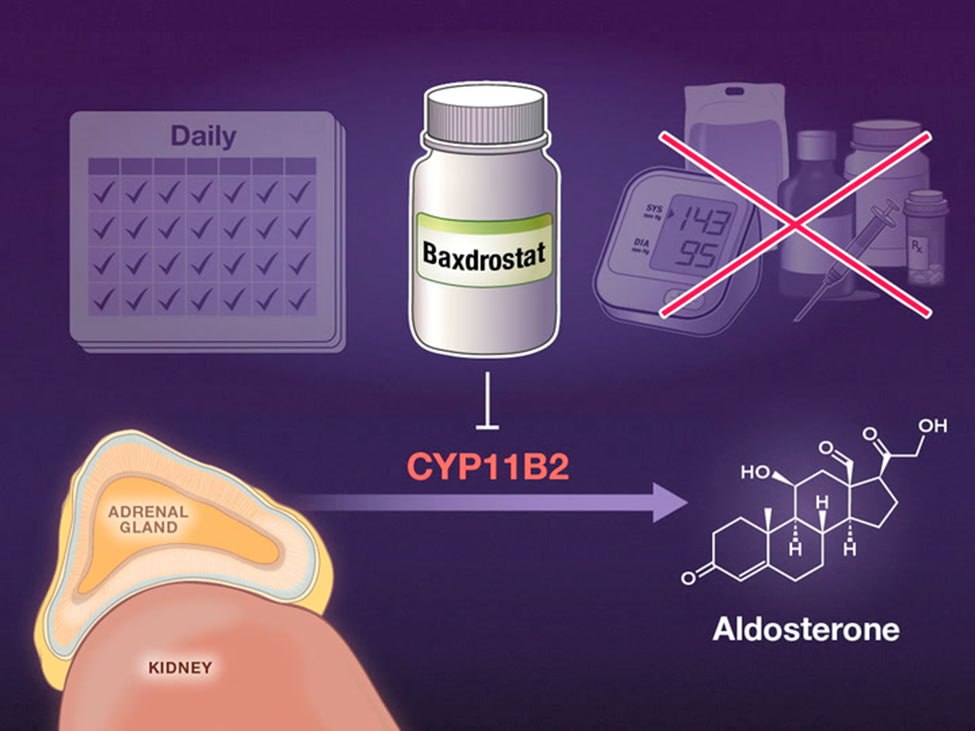A new drug lowered blood pressure and improved kidney health markers in high-risk patients. Phase 3 trials will test its long-term effects.
Preliminary research suggests that adding the new medication baxdrostat to standard treatment may help lower blood pressure and slow the progression of kidney disease in individuals with chronic kidney disease who also have uncontrolled hypertension. The findings were presented at the American Heart Association’s Hypertension Scientific Sessions 2025.
The study was also recently published in the Journal of the American Society of Nephrology.
Chronic kidney disease and high blood pressure are strongly interconnected, and when either condition is poorly managed, they can result in severe complications including heart attack, stroke, heart failure and progression to kidney failure. One of the key factors in this relationship is aldosterone, a hormone produced by the adrenal glands.
Aldosterone promotes sodium retention, which increases water retention and raises blood pressure. Persistently high levels of this hormone can cause blood vessels to become thickened and less flexible, leading to damage in the heart and scarring in the kidneys. This makes aldosterone an important player in both high blood pressure and chronic kidney disease.
“These findings are encouraging for people living with chronic kidney disease and high blood pressure, two conditions that often go hand-in-hand and create a dangerous cycle,” said lead study author Jamie P. Dwyer, M.D., a professor of medicine in the division of nephrology and hypertension at University of Utah Health in Salt Lake City. “High blood pressure can worsen kidney function and declining kidney function can further elevate blood pressure, and these outcomes can be life-altering for patients.”






